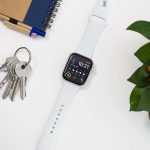Editor’s Note: This article is a reprint. It was originally published February 16, 2017.
Sleep deprivation has the same effect on your immune system as physical stress or illness, which helps explain why lack of sleep is tied to an increased risk of numerous chronic diseases, and why working the night shift — or shifts lasting 24 hours or longer without sleeping — can be so detrimental.
Sleep is also intricately tied to important hormone levels, including melatonin — a potent antioxidant with powerful anticancer activity — which is diminished by lack of sleep. Small adjustments to your daily routine and sleeping area can go a long way to ensure uninterrupted, restful sleep and, thereby, better health.
One of the worst things you can do to help you fall asleep is to reach for a sleeping pill. Research shows these drugs really do not work and come with a laundry list of side effects, many of which can be quite serious, including amnesia, depression and an increased risk for accidents.
One analysis found that sleeping pills like Ambien, Lunesta and Sonata reduced the average time it takes to fall asleep by about 13 minutes compared to placebo, while increasing total sleep time by 11 minutes. Such results are typical. You really gain mere minutes’ worth of sleep when taking these pills!
Meanwhile, sleeping pills may subtract years off your lifespan. According to a 2012 study1,2 people who take sleeping pills have a 35% higher risk for certain cancers and are nearly four times as likely to die from any cause as non-users.
Simple Tricks to Fall Asleep Faster
Fortunately, there are effective and far safer strategies to address sleeplessness, such as simple breathing techniques — one of which I’ll describe below — or, as suggested by sleep specialist Michael Breus in the featured video:3
• Keeping a gratitude journal, noting everything you’re happy and grateful for each evening, just before bed.
• Keeping a worry journal — Worries tend to keep us up at night, and writing them down is a simple way to empty your mind so you can fall asleep. In the evening, but not directly before bed, write down your worries and a possible solution or action you can take for each entry.
It would also be wise to put all your work away at least one, and preferably two, hours before bed. You need a chance to unwind before falling asleep without being anxious about the next day’s plans or deadlines.
• Counting backward from 300 by threes — The mental focus required will prevent you from thinking about anything else, and the sheer boredom of counting may be enough to put you to sleep.
I really do not agree with Breus’ recommendation to watch TV in your bedroom, however. It might offer mental distraction or background noise that helps you fall asleep, but the adverse health effects of the blue light emitted from the TV simply isn’t worth it in the long term.
If you missed my interview with photobiology expert Dr. Alexander Wunsch, I urge you to listen to it to gain a more thorough understanding of why electronic screens are so bad for you at night. Also remember that what you eat and drink, and when, can impact your ability to fall and stay asleep.
Diet Choices and Meal Timing May Also Impact Your Sleep
Common sense suggestions include avoiding coffee and caffeinated beverages such as soda, caffeinated teas and energy drinks several hours before bedtime. If you’re sensitive, your sleep may suffer if you consume caffeine after noon.
While one to two cups of black organic coffee can be healthy, drinking too much, especially in the afternoon or evening, can overstimulate you and, in the long term, alter your body’s internal clock.4 Ditto for alcohol.
While it may make you nod off quicker, research shows drinking alcohol makes you more likely to wake during the night, leaving you feeling less rested in the morning.
Spicy foods and unhealthy fatty or sugary foods can also lead to fragmented sleep,5 especially when eaten late in the evening. This is thought to be due to the brain chemical hypocretin, a neurotransmitter that helps keep you awake and also plays a role in appetite.
Eating too close to bedtime, or very late at night when you’d normally be sleeping, may also throw off your body’s internal clock.
Avoiding food for at least three hours before bed will lower your blood sugar during sleep and help minimize mitochondrial damage. It will also jumpstart the glycogen depletion process so you can shift to fat-burning mode.
A 2012 study6 offers powerful confirmation of this recommendation. It found the mere act of temporarily altering your typical eating habits — such as getting up in the middle of the night for a snack — causes a certain protein to desynchronize your internal food clock, which can throw you off-kilter and set a vicious cycle in motion.
4-7-8 Breathing Technique May Ease You Into Sleep Faster
As noted by Dr. Andrew Weil in the video above,7,8 a consistent breath practice can help improve your sleep. It’s not a one-shot deal though. You need to do it at least twice a day, every day. The benefits become apparent after a month or two of consistent practice.
One of the reasons breathing techniques such as this one are so effective for improving sleep is because it eases internal tensions and anxiety that might prevent you from falling asleep.
In fact, according to Weil, this particular breathing technique, known simply as the 4-7-8 breathing technique, is among the most potent remedies for anxiety, as it acts as a natural tranquilizer for your nervous system.
To perform it correctly, the key is to remember the numbers 4, 7 and 8. It’s not important to focus on how much time you spend in each phase of the breathing activity, but rather that you get the ratio correct. Here’s how it’s done:
Sit up straight and place the tip of your tongue up against the back of your front teeth, touching the roof of your mouth. Keep it there through the entire breathing process. Begin by exhaling fully through your mouth, making an audible “whoosh” sound.
Breathe in silently through your nose to the count of four.
Hold your breath to the count of seven.
Exhale through your mouth to the count of eight, making an audible “whoosh” sound.
That completes one full breath. Repeat the cycle another three times, for a total of four breaths. It’s recommended you don’t do more than four full breaths during the first month or so of practice. Later you may work your way up to eight full breath cycles at a time.
What Science Tells Us About Ideal Sleep Amount and the Ramifications of Too Little
According to an analysis of available research by the American Academy of Sleep Medicine and the Sleep Research Society, the weight of the evidence suggests adults need somewhere between seven and nine hours of sleep each night for optimal health, with the Goldilocks’ Zone being right around eight hours. As noted by Dr. James Hamblin, who is also a senior editor at The Atlantic:9
“One 2014 study of more than 3,000 people in Finland found that the amount of sleep that correlated with the fewest sick days was 7.63 hours a night for women and 7.76 hours for men. So either that is the amount of sleep that keeps people well, or that’s the amount that makes them least likely to lie about being sick when they want to skip work …
Going to sleep and waking up at consistent times each day is valuable too. When we get fewer than seven hours, we’re impaired (to degrees that vary from person to person). When sleep persistently falls below six hours per 24, we are at an increased risk of health problems.”
Indeed, a lack of quality sleep has been shown to have a significant impact on your brain and overall health and wellness. The following is a sampling of the health effects associated with sleep deprivation:
Increased risk of car accidents
Increased accidents at work
Reduced ability to perform tasks
Reduced ability to learn or remember
Reduced productivity at work
Reduced creativity at work or in other activities
Reduced athletic performance
Increased risk of Type 2 diabetes, obesity, cancer, high blood pressure, osteoporosis and cardiovascular disease
Increased risk of depression
Increased risk of dementia and Alzheimer’s disease
Decreased immune function
Slowed reaction time
Reduced regulation of emotions and emotional perception
Poor grades in school
Increased susceptibility to stomach ulcers
Exacerbates current chronic diseases such as Alzheimer’s, Parkinson’s, Multiple Sclerosis (MS) and cancer
Cutting one hour of sleep a night increases the expression of genes associated with inflammation, immune excitability, diabetes, cancer risk and stress10
Contributes to premature aging by interfering with growth hormone production, normally released by your pituitary gland during deep sleep
How to Compensate if You Work the Night Shift
I reviewed the ill effects of working the night shift in November last year, and why you need to do everything in your power to avoid working them. But if you have no other choice but to work the night shift, then your best option is to always wear blue-blocking glasses while working, and make sure that when you get up, and it is night, that you get some blue light exposure, as this will help shut down melatonin production, thereby helping to wake you up.
The healthiest option is the sun, as sunlight is perfectly balanced in terms of wavelengths but, obviously, the sun is not up if you’re getting up at night. In this case, I would suggest using a conventional clear incandescent bulb in combination with a bright cool white (blue-enriched) LED bulb. You need both, not one or the other, as the LED will give you the blue and the incandescent the balancing red and near infrared spectrum.
You will only need to use the bluish LED light for 15 to 30 minutes, following the recommendation described below. This will help you to establish your new circadian rhythm.
You might need to play with the number of bulbs you use, as up to 10,000 lux have been shown to be effective for the treatment of seasonal affective disorder (SAD). My guess is that these doses are far too high if you are not treating SAD but trying to help your body to optimize all the systems necessary for performance during night shift.
Ideally, start with incandescent light immediately after getting up, thereby simulating sunrise. After half an hour or so, add the cold white LED light, mimicking the sun’s ascent toward high noon. Remember to continue with the incandescent bulb(s). Once you feel the photonic energy boost, you can stop the LED use, since too much will do more harm than good. (Bluish [LED] light generates excessive amounts of free radicals if not adequately balanced by red and near infrared light.)
After this initial dose of blue light, it would be wise to limit your further exposure to blue light. This means using only incandescent bulbs at home, and if you go out of your home, avoiding any additional exposure to LED or fluorescent bulbs by wearing your blue-blocking glasses. While this process is far from ideal, it should mitigate a lot of the damage that night shift workers encounter.
Remember your BEST choice is to stop night shift working and get full sunlight exposure in the daytime, and that it will be virtually impossible to imitate the full-spectrum and brightness of natural sunlight, even with a high-quality UV lamp, cool white LED bulbs and bright incandescent lights.
It’s better than nothing, but by working nights, you are depriving yourself of a crucial component for health, namely natural sunlight. The sun’s rays not only are the catalyst that allows your skin to produce vitamin D, but sunlight also plays a role in mitochondrial health, biological energy production and is really important for healthy vision.
Clean Up Your Sleep Hygiene With These Simple Tips
Increasing the number of hours you sleep to eight each night and improving your quality of sleep may help to significantly reduce your risks associated with sleep deprivation.
In addition to the strategies already covered — such as emptying your mind by keeping a gratitude and/or worry journal, counting backwards, being mindful of your food and beverage choices during the day and the timing of your meals, and implementing a mindful breathing practice — the following suggestions may also set you on the right track.11,12
Turn your bedroom into an oasis for sleep — Your bed is a place to sleep and rest comfortably. Only two other activities will not significantly impede a restful sleep: reading and intimate relations with your significant other. Anything else, such as work, computers, cellphones or watching television will reduce the quality of your sleep.
Reduce any noisy interruptions from pets or outdoor activities. You might consider removing your pet from the bedroom or using a white noise machine to reduce interruptions from outdoor noises.
Establish a soothing pre-bedtime routine — Humans are creatures of habit. When you establish a soothing bedtime routine you go through each evening before bed, you’re more likely to fall asleep easily. Activities such as a warm bath, reading a good book or relaxation exercises may help you fall asleep easier.
If you have trouble falling to sleep one night, it’s better to leave the bedroom and read quietly than to try even harder to fall asleep. I would strongly recommend using blue-blocking glasses if you do this, to prevent your reading light from further depressing your melatonin production.
Keep a consistent schedule — When you go to bed and wake up at the same times, your body becomes accustomed to the routine. This helps regulate your circadian clock so you fall asleep and stay asleep all night. Keep this routine even on the weekends.
Get plenty of bright sunlight exposure in the morning and at noon — Exposure to bright light first thing in the morning stops production of the sleep-inducing hormone melatonin and signals to your body that it’s time to wake up. Outdoor sunlight is best, so you might even want to take a quick walk outside.
Not only will this increase in physical activity help you sleep later, but taking your walk outdoors — either first thing in the morning or around noon when the sun is high — gives you more exposure to bright sunlight.
Light intensity is measured in lux units, and on any given day, the outdoor lux units will be around 100,000 at noon. Indoors, the typical average is somewhere between 100 to 2,000 lux units, about two orders of magnitude less.
I take a one-hour walk every day in the bright sunlight on the beach, so along with boosting my vitamin D, I also anchor my circadian rhythm at the same time and I rarely ever have trouble sleeping.
At sundown, dim your lights (and/or use amber-colored glasses) — In the evening (around 8 p.m.) you’ll want to dim your lights and turn off electronic devices. Normally, your brain starts secreting melatonin between 9 p.m. and 10 p.m., and these devices emit light that may stifle that process. After sundown, shift to a low-wattage incandescent bulb with yellow, orange or red light if you need illumination.
A salt lamp illuminated by a 5-watt bulb is an ideal solution that will not interfere with your melatonin production. If using a computer or smartphone, install blue light-blocking software like Iris — an improved version of f.lux.
The easiest solution, however, is to use amber-colored glasses that block blue light. I found an Uvex model (S1933X) on Amazon that costs less than $9 and works like a charm to eliminate virtually all blue light.
This way you don’t have to worry about installing programs on all your devices or buying special light bulbs for evening use. Once you have your glasses on, it doesn’t matter what light sources you have on in your house.
Check your bedroom for electro-magnetic fields (EMFs) — These can disrupt your pineal gland and the production of melatonin and serotonin, and may have other negative effects as well. To do this, you need a gauss meter. You can find various models online, starting around $50 to $200. Some experts even recommend pulling your circuit breaker before bed to kill all power in your house.
Exercise daily — Your body thrives on exercise and movement. It reduces your risk of cardiovascular disease and metabolic disorders. Exercise will help you get to sleep more easily and sleep more soundly. However, your body also releases cortisol during exercise, which may reduce your melatonin secretion. Exercise at least three hours before bed, and earlier if you can.
Keep your room cool — The optimal temperature for sleeping is between 60 °F and 68 °F. If your room is cooler or warmer, you may have a more restless night’s sleep.13 During sleep your body’s core temperature drops to the lowest level during a 24-hour period. The cooler your room is, the more conducive it may be to your body’s natural drop in temperature.
Sleep naked — Sleeping naked will help keep you cooler, and provides a number of other health benefits besides improving your chances of a good night’s sleep.
Evaluate your mattress and pillow — You’ll experience more restful sleep when your mattress and pillows are comfortable and supportive. You’ll want to consider replacing your mattress after nine or 10 years, the average life expectancy of a good-quality mattress.






